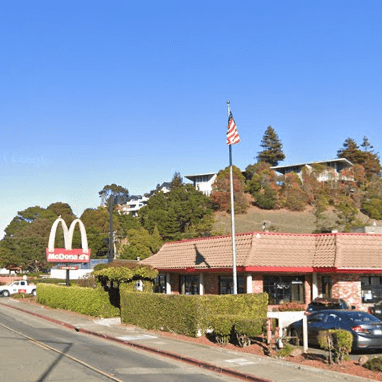
UPDATE 9.8.22: Restaurant owners moved to at least temporarily block a nation-leading new California law giving more power to fast food workers. A coalition calling itself Protect Neighborhood Restaurants filed a referendum request with the state attorney general, the first step before the law’s opponents can begin gathering signatures. If they get enough, the law that Gov. Gavin Newsom signed on Monday, Labor Day, wouldn’t take effect unless it’s supported by a majority of voters.
A bill that has drawn huge pushback from food chains with at least 100 locations nationwide – in Mill Valley, it would impact McDonald’s, Starbucks, Peet’s, Dominos, Subway and In-N-Out Burger – was approved by the California State Senate on Monday. The measure, known as A.B. 257, passed by a vote of 21 to 12, and was previously approved by the State Assembly.
The legislation seeks to create a council that would set wages and working conditions for the fast-food industry, according to the New York Times. It now moves to the desk of Gov. Gavin Newsom, who has until Sept. 30 to sign it.
If signed, the bill would set up a 10-member council, including representatives for workers and employers. It could set industrywide minimum wages in California at up to $22 an hour next year, far exceeding the statewide minimum wage of $15.50, the Times reports.
“It’s one of the most significant pieces of state employment legislation that’s passed in a long time,” Kate Andrias, a labor law expert at Columbia University, told the Times. Andrias says the bill would move California toward sectoral bargaining, in which workers negotiate with employers over pay and working conditions on an industry basis, instead of company by company. That structure is closer to what is referred to as sectoral bargaining, which is more common in in Europe.
Matthew Haller, the president of the International Franchise Association, called the battle “the biggest lobbying fight that the franchise sector has ever been in,” according to the The Wall Street Journal. Newsom’s Department of Finance opposed an earlier version of the bill that gave the council jurisdiction over matters like scheduling and made restaurant chains joint employers of franchise employee.
